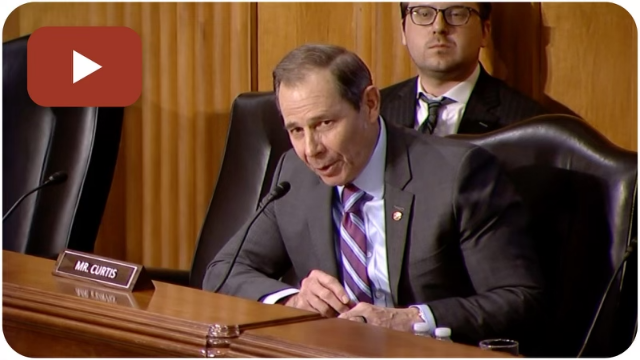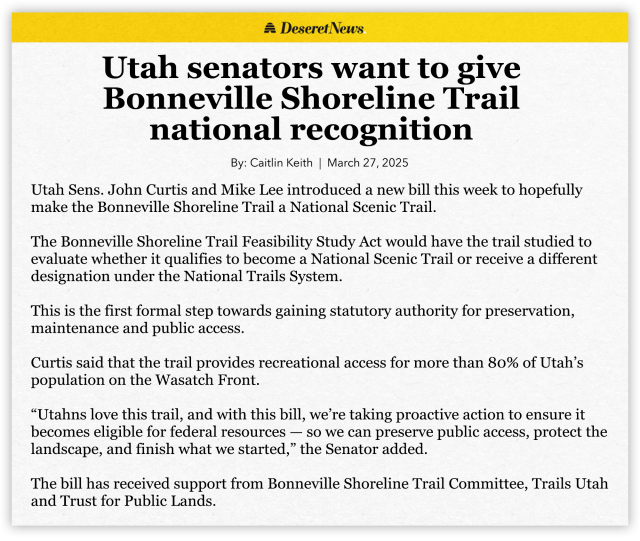|

Utah has a special relationship with Israel—and it runs deeper than just having a ‘Jordan River’ or a national park called ‘Zion.’ During a Foreign Relations Committee hearing, Senator Curtis emphasized Utah’s enduring connection to Israel—culturally, spiritually, and diplomatically—drawing from his own experience living in a kibbutz as a young student at Brigham Young University and witnessing firsthand the signing of the 1979 Egypt-Israel peace treaty.


Full story by Suzanne Bates here.

As Utahns know, the impacts of a wildfire do not end when the fire is put out. Without swift action to rehabilitate and restore the land, it is left vulnerable to further damage. Senators Curtis and Bennet (D-CO) reintroduced the Making Access to Cleanup Happen (MATCH) Act and the Watershed Protection and Forestry Recovery Act—bipartisan legislation that together improve and expedite emergency watershed recovery efforts. Amid increasing frequency and severity of wildfire, floods, and other natural disasters, these bills remove common bureaucratic barriers that delay disaster response and reflect a proactive, locally partnered approach to forest and watershed recovery.

Utahns love the Bonneville Shoreline Trail, which provides recreational access to over 80% of the Wasatch Front. Senators Curtis and Lee (R-UT) introduced the Bonneville Shoreline Trail Feasibility Study Act, legislation to conduct a feasibility study to evaluate whether the Bonneville Shoreline Trail qualifies to become a National Scenic Trail or another designation under the National Trails System. The study marks the first formal step to unlocking statutory authorities for preservation, maintenance, and public access under the designation.

Full story by Caitlin Keith here.

Senator Curtis, Chair of the Foreign Relations Western Hemisphere Subcommittee, held a hearing on China’s influence and Taiwan’s diplomatic allies in the Western Hemisphere. In his opening remarks, Chairman Curtis marked the five-year anniversary of his bipartisan TAIPEI Act, a law he sponsored to strengthen U.S. support for Taiwan’s diplomatic allies and push back against China’s coercive influence. The Senator argued that China’s efforts threaten not only Taiwan’s global position but also U.S. national interests and regional stability.


Unnecessary red tape and outdated restrictions are holding back access to energy development opportunities. Senators Curtis and Schatz (D-HI) introduced the Tribal Energy Fairness Act, bipartisan legislation to expand Tribal access to federal energy programs by removing unnecessary barriers and making technical fixes. It also allows Tribes to directly apply for and manage energy and grid resilience resources without needing to pass funds through utility providers.

|